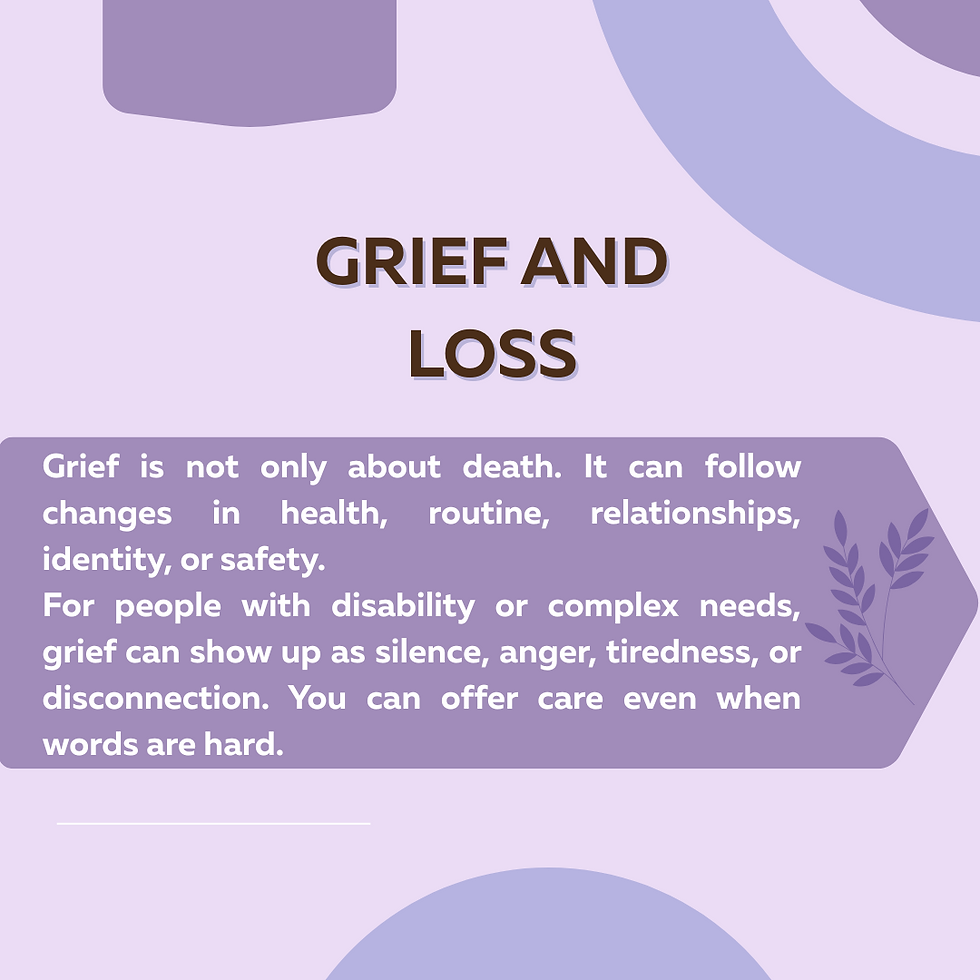How to Support Someone Through Grief and Loss
- One Step Ahead

- Aug 20, 2025
- 2 min read
Grief is not just about death. It can come from the loss of routine, health, mobility, connection, identity, or even safety. For people with disability, chronic illness, or trauma

histories, grief can show up in many forms, and it is not always easy to recognise.
As carers, support workers, and allied health professionals, we are often walking beside people who are grieving. We may not always have the right words, but we can still offer meaningful support.
What Grief Might Look Like
Grief is deeply personal. It might show up as:
Withdrawal or isolation
Changes in appetite or sleep
Increased agitation or emotional outbursts
Forgetfulness or fatigue
Seeming “shut down” or disinterested
Loss of interest in things they used to enjoy
Grief does not follow a neat timeline. People may grieve in waves, or for a long time. Some people may not show outward signs at all.
Practical Ways to Support Someone Who Is Grieving
You do not need to fix it. You just need to show up. Here are five gentle ways to offer support:
Support Strategy | What It Looks Like in Practice |
Hold space | Sit quietly with the person. Let them cry, talk, or say nothing at all. |
Use open language | Avoid clichés. Say things like “That sounds really hard” or “I am here for you.” |
Offer small choices | Ask if they want to take a break, go outside, or choose their activity. |
Acknowledge the loss | Even if it seems small to others, say “I know this meant a lot to you.” |
Stay present over time | Keep checking in weeks or months later. Grief does not end after one conversation. |
Grief and Disability Support
People with disability may experience grief around:
Losing a support worker or routine
Changes in health or mobility
Being excluded or misunderstood
Life transitions such as moving homes or graduating programs
The emotional toll of being in care systems
Support workers and carers often play a central role in helping the person process these changes.
Final Thought
Grief is not something to rush or solve. It is something to walk alongside.
When we meet people in their sadness with patience, safety, and compassion, we give them the space to heal in their own time.



